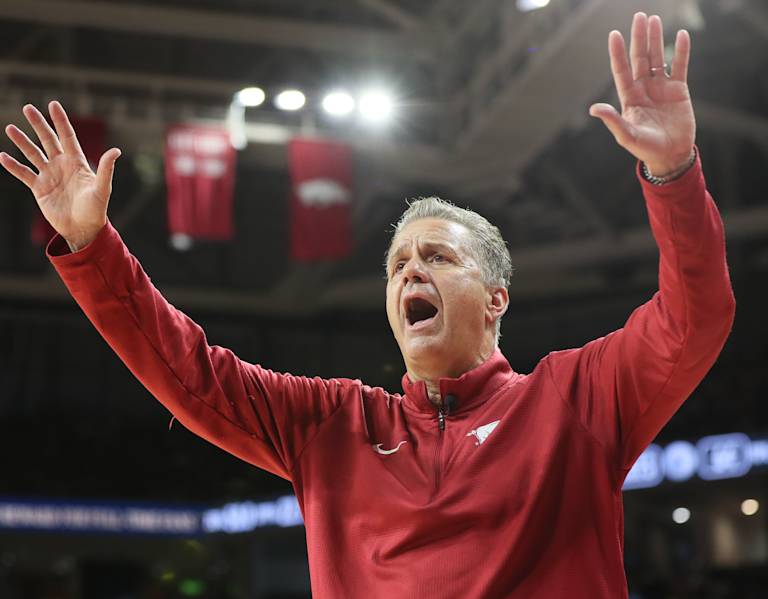The sale of the Los Angeles Lakers is many things.
First of all, it is a record. The glitziest team in basketball is changing hands at a valuation of $10bn, the biggest ever for a sports franchise. Second, it is probably an excellent deal for the buyer, even at that astonishing valuation. And third, the shift in majority ownership from the Buss family to an investment group led by Los Angeles Dodgers owner Mark Walter, is something else: inevitable.
Advertisement
Sports teams are an eye-watering asset class. Not only does owning one confer countless perks and the kind of societal status that most money can’t even buy, but team valuations in the major North American sports have been on a steep upslope for decades. The sale of the Lakers represents a new peak and is also the latest data point that illustrates a new fact about sports ownership. The best properties have become too valuable an asset class for people like Jeanie Buss to control them.
Related: Lakers to be sold to Dodgers owner at $10bn valuation, per reports
Buss’ father, Jerry, bought the team in 1979, and the Lakers have since then operated like one of the world’s largest family businesses. The Lakers are by far the biggest source of the Buss family’s wealth, and as ESPN reported on Thursday, the team has traditionally used its own revenues to pay its expenses. Its golden goose is an enormous local television deal with the LA cable provider Spectrum.
The cable bundle is dying, however, and these days the biggest sports teams are increasingly owned not by wealthy individuals and families but by consortiums of deep-pocketed investors and institutions. The Lakers had already moved in this direction; the Buss family sold a quarter stake in the team to a group led by Walter in 2021. That same group – with Walter as the frontman, but by no means doing it alone – took control of the Dodgers in 2012 and later bought control of the WNBA’s Los Angeles Sparks.
Advertisement
Blue-chip sports properties like the Lakers are now too big for even most billionaires to just reach into their pocket and by all alone. For that reason, leagues have gradually made it much easier for institutional investors to buy stakes in teams. (The NFL, with limits, has swung open the door to private equity.) The corollary to that trend is that when a longtime owner like Jeanie Buss has buyers lined up with enough liquidity to secure her family fortune in cash, rather than ownership of a team, she’s likely to jump at it.
The Lakers’ new owners are likely to do very well on their investment. The decline of cable is a major threat to professional sports teams, and some smaller-market clubs in the NBA, NHL and Major League Baseball have taken substantial cash flow hits as regional carriers have faded. But the Lakers are so entwined with one of the world’s largest cities that to bet against their continued growth is to bet against the future popularity of basketball, the city of Los Angeles and live entertainment altogether. Angelenos will not stop buying Lakers tickets and, even more critically, will not stop happily paying to watch 82 games per year, whether they’re doing that on a streamer or traditional TV. The Lakers are too big to fail, and some time down the line, someone will value them at well more than $10bn.
The sale will probably be good for Lakers fans, though they are not the priority in any transaction of this type. Walter’s group has done wonders with the Dodgers, seizing on the franchise’s natural advantages – a rabid fanbase and a location players want to play in – and turned the team into the most consistent winner in baseball. It is harder to flex a financial advantage in the NBA than in salary cap-less MLB, but Walter’s Dodgers have become the team with the best reputation among ballplayers. Not that the Lakers have a hard time attracting stars, but one could imagine them attracting even more of the players they covet. At the end of the day, isn’t that kind of product what fans want to see?
While this will all likely go fine for the Lakers, the shift in ownership models does raise questions about what will become of sports teams that don’t defy gravity by their very existence. Plenty of individual club owners have been massive flops who have earned the endless scorn of their clubs’ fans. But the fact of having one highly visible, specific owner has at least rendered a version of accountability. After all, it’s easier for Manchester United fans to chant “Glazers out!” than it would be to chant “shadowy consortium of institutional investors out!” A move toward large groups of investors controlling iconic teams will make it easier for individual actors to milk them for cash without facing the kind of public shaming that has long been possible for teams with more identifiable villains in the owner’s suite. The Lakers are big enough and successful enough that this dynamic might never come to a head. Most teams can’t say the same.
.png)
 German (DE)
German (DE)  English (US)
English (US)  Spanish (ES)
Spanish (ES)  French (FR)
French (FR)  Hindi (IN)
Hindi (IN)  Italian (IT)
Italian (IT)  Russian (RU)
Russian (RU) 







Comments